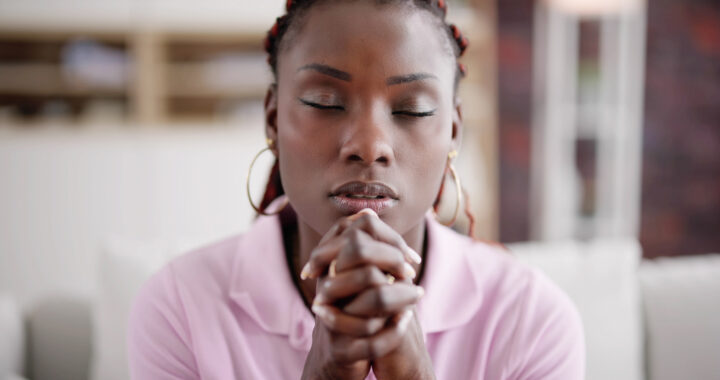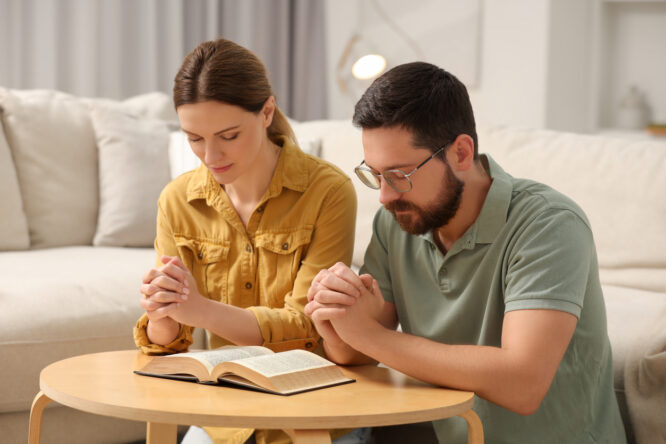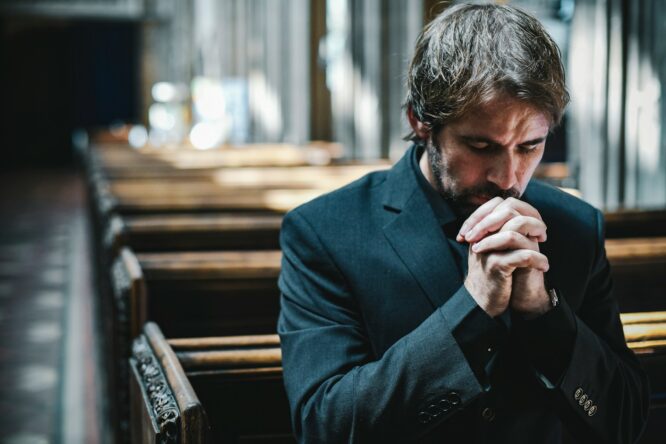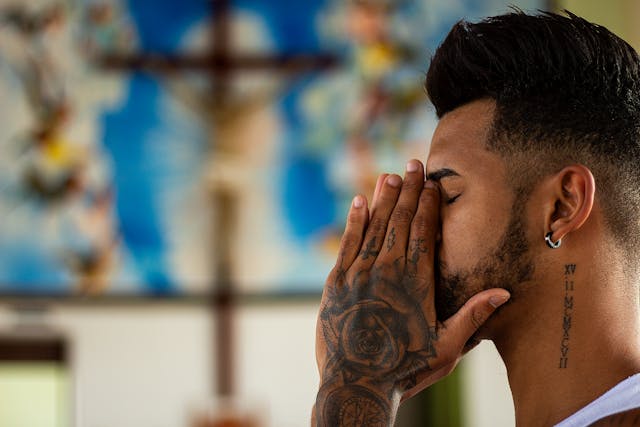People with a genuinely healthy relationship with religion don’t usually shout about it, but you can feel it in the way they move through life.

It’s less about rules and more about connection, less about control and more about meaning. These 14 habits might not be what you’d expect, but they show up quietly and consistently in people whose faith is grounded, steady, and not performative.
1. They don’t pressure anyone to believe what they believe.

You won’t find them debating strangers online or guilt-tripping their friends into showing up at church. Their faith isn’t a sales pitch; it’s a personal compass. They’re happy to talk about it, but they don’t push it. Because they feel secure in what they believe, they’re not thrown off by people who think differently. They’re more focused on living it than convincing anyone else to copy it.
2. They’re comfortable asking hard questions.

Instead of pretending to have all the answers, they stay curious. They ask big questions, wrestle with doubt, and reflect on what faith looks like beyond the obvious. For them, questioning doesn’t mean they’re losing their faith. It means they’re deepening it.
This habit creates a sense of freedom. They’re not afraid of the grey areas, and they don’t panic when things feel unclear. Their belief is flexible enough to hold both conviction and curiosity at the same time.
3. They practise their values more than they talk about them.

It’s not about posting Bible verses or constantly bringing up their beliefs in conversation. It shows up in the way they treat people—with kindness, consistency, and integrity, even when no one’s watching. You can feel their faith in the way they show up for people, not just in what they say. It’s lived-in, not performative, and that quiet consistency often speaks louder than any sermon.
4. They don’t get defensive about other people’s beliefs.

They’re not threatened by different religions, spirituality, or even atheism. They can have real conversations without needing to “win.” They’re grounded enough in their own path that someone else’s doesn’t shake them. Their openness makes them easier to be around, and more approachable. Their goal isn’t to be right; it’s to understand. That kind of peace shows a lot about how deep their faith really runs.
5. They acknowledge when religion has been used harmfully.

They don’t pretend religion has always been pure. They’re willing to admit that spiritual spaces have sometimes caused harm, and they don’t deflect when people share painful experiences tied to faith. Instead of getting defensive, they listen. They don’t confuse criticism of religious systems with a personal attack. That humility creates space for healing, both for themselves and other people.
6. They keep their spiritual practices personal.

Whether it’s prayer, meditation, attending services, or reading sacred texts, it’s something they do for themselves, not for show. You won’t find them broadcasting their morning routine or spiritual habits for likes. For them, these rituals are grounding. They help create a sense of inner steadiness. And because it’s not about performance, it’s easier for them to stay connected through seasons when things feel messy or uncertain.
7. They’re not afraid to walk away from unhealthy spaces.

If a church or group becomes toxic, manipulative, or shame-based, they’ll quietly step away. Their relationship with faith isn’t tied to a specific building or leader. They know the difference between belief and control. They stay connected to what feels spiritually real to them, even if it means finding community elsewhere. They don’t confuse loyalty to a system with loyalty to their own spiritual growth.
8. They show grace when people mess up.

They don’t expect perfection from themselves or anyone else. If someone gets it wrong, loses their way, or struggles with something messy, they don’t rush to judgement. They offer space, patience, and care. This doesn’t mean they have no boundaries, just that their first instinct isn’t to shame or correct. It’s to understand and support. That kind of emotional generosity usually comes from a deep, lived-in faith.
9. They create space for people to be honest about doubts.

They’re the kind of person you can say, “I’m struggling with all of this” to, and they won’t shut down the conversation. They know that doubt is part of the spiritual process, not something to be feared or shamed. They make room for honesty, even when it’s uncomfortable. That openness helps everyone breathe easier around them. It shows that their faith isn’t brittle. It’s strong enough to hold hard truths.
10. They don’t treat blessings like a scoreboard.

If something good happens, they’re grateful. But they don’t act like success means they’re more spiritual, or that people going through hard times must be doing something wrong. They know life is more layered than that. Their faith shows up in how they respond to both joy and struggle, not just in how much “favour” they seem to have. They don’t turn religion into a competition or a reward system.
11. They see faith as part of life, not all of it.

They don’t force religion into every single conversation or decision. Their beliefs shape their life, but they’re still able to laugh, live in the moment, and connect with people outside of their faith. They understand balance. Spirituality is part of who they are, but it doesn’t override their personality or their ability to connect in real, down-to-earth ways. That makes their presence feel warm, not intense.
12. They’re okay not having the last word.
 Source: Unsplash
Source: Unsplash They don’t need to win arguments or prove a point every time religion comes up. They’re okay agreeing to disagree, and they know when to let the conversation go, especially if it’s not leading anywhere helpful. That calmness often comes from inner peace. They’re not trying to convert people mid-chat. They’re more focused on building connection than controlling someone’s beliefs.
13. They’re comfortable with nuance.
 Source: Unsplash
Source: Unsplash They don’t reduce everything to black-and-white answers. They understand that life (and faith!) can be complicated, and they’re not afraid to sit in that discomfort without jumping to easy conclusions. Their ability to hold nuance makes their faith feel mature. It’s not about having every box checked. It’s about staying present, even when things don’t make perfect sense.
14. They’re still growing.
 Source: Unsplash
Source: Unsplash People with a healthy relationship to religion don’t act like they’ve arrived. They’re still learning, questioning, unlearning, and trying to align their beliefs with how they live. There’s movement, not stagnancy. You can feel it in the way they talk. There’s humility, not arrogance. They don’t preach from a mountaintop. They walk beside you, still on the journey themselves, and that makes the whole thing feel more real.



